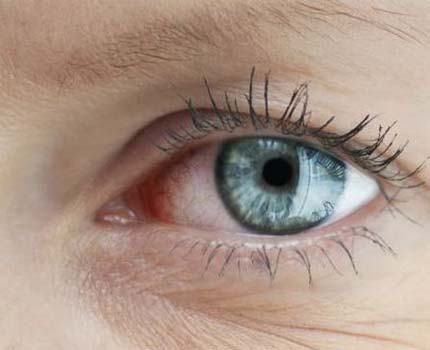 Some of the most effective ways to manage refractive errors includes the use of almonds, spinach, carrots, coconut, chicory, bilberry, Indian gooseberry and licorice, as well as behavioral approaches like eye exercises, breathing exercises, and off-screen time.
Some of the most effective ways to manage refractive errors includes the use of almonds, spinach, carrots, coconut, chicory, bilberry, Indian gooseberry and licorice, as well as behavioral approaches like eye exercises, breathing exercises, and off-screen time.
Refractive Errors
You might not recognize the name “refractive error“, but there is a good chance you have one or know someone else who does! Between 900 million and 2.3 billion around the world suffer from some type of refractive error, but you are likely more familiar with their specific names, like myopia, hyperopia, or astigmatism. By definition, a refractive error is defined as an error by the eye in focusing light properly, which leads to blurred vision or reduced visual acuity. There are two main types of refractive errors: spherical errors and cylindrical errors. The former occurs when the optical power of the eye if too great or small, making it impossible to focus light properly, thus resulting in blurry vision. Cylindrical errors mean that one meridian of the eye can’t properly focus light.
The common treatments for most of these issues is glasses, corrective contact lenses, or various surgeries, but considering that these refractive errors can worsen over time, thus requiring different prescriptions and treatments over time. Fortunately, there are ways to slow down or improve refractive errors, both through nutritional and behavioral remedies. Many people choose to boost their eye health and counter the effects of refractive errors in a more natural way. Now, let’s take a quick look at 10 ways to manage refractive errors.
10 Ways to Manage Refractive Errors
Spinach: Lutein and zeaxanthin are the two most well known active ingredients in spinach, and while they are primarily linked to antioxidant effects and the prevention of macular degeneration, they are also linked to strengthening of the eye and protection against ultraviolet rays. For those suffering from myopia and other refractive errors, spinach in many forms can be a wise dietary choice.
Almonds: Almonds and many other nuts are rich in protein and other antioxidant nutrients that can help to slow down oxidative stress in the eye, which can often lead to the worsening of refractive errors. You can make an almond powder and add it to water or you can simply eat almonds as a healthy snack a few times a week to boost your optical power and protect your ocular health.
Reduce Screen Time: In our modern world, it seems impossible to avoid staring at a screen for some part of your personal or professional life. Unfortunately, this is the sort of strain and constant use (combined with a noted drop in blinking frequency and dry eyes) that can lead to rapidly diminishing optical power. It is wise to give your eyes a break from time to time, usually for 5-10 minutes per hour if you are consistently staring at a screen.
Coconut: Coconuts, particularly coconut oil, has been closely linked with a reduction in macular degeneration, which can negatively impact the retina. The retina is the part of the eye on which light must be focused in order to process images. When your retina is damaged, your vision is blurry. Therefore, using coconut oil instead of traditional vegetable oils, which don’t have nearly as many beneficial antioxidants for macular degeneration, is wise to prevent your refractive errors from getting worse.
Bilberry: One of the best natural sources of anthocyanins, bilberry has long been connected with improving eye health, improving myopia, and eliminating cataracts. For those suffering from existing refractive errors, adding bilberry to your diet can boost vision health and prevent the further degradation of your eyesight.
Eye Exercises: Keeping your eyes in good shape is just as important as any other muscle group, but it’s easy to forget about! Try simple eye exercises to keep your eyes strong, such as depth perception tests, focusing activities, and personally examining your degree of focus at different distances. By keeping those eye components fresh and active, you can prevent oxidative stress and improve your chances of maintaining strong vision.
Indian Gooseberry: As one of the richest sources of vitamin C found in nature, Indian gooseberry is used in many traditional remedies, and in terms of refractive errors, the antioxidant potential of the ascorbic acid can significantly reduce oxidative stress and damage to the retina, which ensure strong vision and doesn’t allow refractive errors to worsen over time.
Licorice: There are a number of anti-inflammatory and soothing qualities of licorice that make it a valuable health remedy for many different conditions and disorders. Inflammation of the eyes is also a source of free radicals and oxidative stress, which can impair vision and compound the problems of refractive errors.
Carrots: Traditionally, carrots have been considered the best possible vegetable for eyesight, and the high content of beta-carotene is largely responsible for that. Beta-carotene is one of the most important nutrients for eye health, and is directly linked with eliminating macular degeneration and protecting the retina.
Chicory: Vitamin A is one of the other crucial nutrients needed for eye health and is found in high concentrations in chicory. In fact, the human body can convert beta-carotene into vitamin A, so natural sources are even more important, so the body can benefit from both of these nutrients. Vitamin A is similarly beneficial to eye health, reducing the presence of cataracts, slowing oxidative stress, and preventing macular degeneration.
A Final Word of Warning: While many people don’t take refractive errors too seriously, and simply think that new contacts and glasses are the only answer, it’s never a bad idea to see an ophthalmologist for regular checkups. If your vision seems to be failing rapidly, don’t rely solely on natural remedies.

